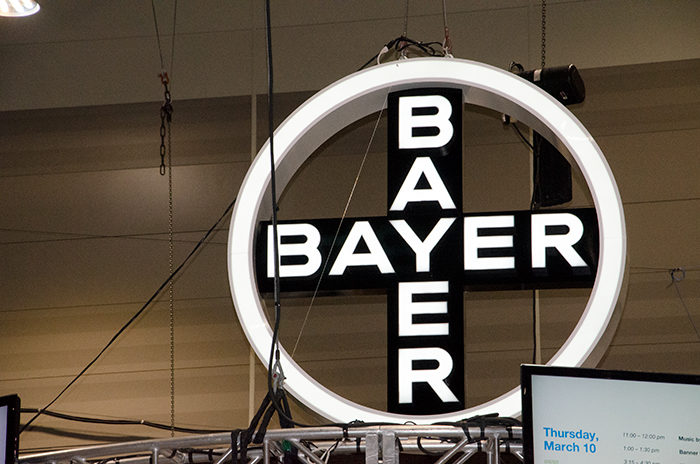For the second time in as many days, glyphosate manufacturer Bayer was dealt a legal setback by a federal court.
The U.S. Supreme Court denied on Tuesday the company's writ of certiorari for a case arising from California that had resulted in a multimillion dollar verdict against the company.
A writ of certiorari is the means to get a case before the Supreme Court. If the justices grant the writ, it results in oral arguments and typically a precedent-setting judgement for or against one of the parties. If the justices deny the writ, it means previous rulings on the cases by lower courts stand.
Justices infrequently explain the reasoning behind granting or denying a writ. In this case, no opinion has been issued.
The denial comes on the heels of a ruling by the U.S. Ninth Circuit Court of Appeals that had sent an interim EPA ruling on whether or not glyphosate was harmful to humans back to the EPA for reconsideration, meaning the EPA could change the earlier assessment. In that case, a three-judge panel of the court ruled that the EPA had not followed its mandated scientific process to determine potential harmful side-effects.
The ruling also means Bayer subsidiary Monsanto must pay a $25 million verdict to a California man who claims glyphosate caused his non-Hodgkin's lymphoma. The case was seen as a bellwether for about 5,000 similar cases filed in federal courts and consolidated for trial in the U.S. District Court of Northern California.
About three-quarters of the claims against Roundup come from residential consumers rather than agriculture ones, according to the Wall Street Journal. Bayer executives argue agricultural users are more adept at using glyphosate, and also say the ruling in the case Monsanto v. Hardeman, if allowed to stand, would chill pesticide production by discouraging innovation for fear of legal repercussions.
Numerous groups had filed amicus curiae briefs — writings by interested parties who are not directly involved in the lawsuit — urging the Supreme Court to take up the case. Almost all had argued that the EPA's ruling meant the Supreme Court should overrule the Ninth Circuit.
Medical science has typically viewed non-Hodgkin's lymphoma as "idiopathic," meaning the disease does not have a known cause.
A ruling by the International Agency for Research on Cancer (IARC) in 2015 prompted thousands of lawsuits to be filed against the company.
The IARC analyzed numerous studies involving a link between the lymphoma and glyphosate, and ruled that glyphosate "probably" caused cancer, which is supposed to trigger further investigation.
The IARC finding does not determine that glyphosate definitely causes cancer, or identify the means by which glyphosate could cause cancer.
Bayer has said the ruling — which at the least will require re-labelling of products containing glyphosate sold in California — could result in price increases for consumers, including no-tillers, who frequently use it on glyphosate-resistant crops as part of a no-till spraydown.
The American Soybean Association issued a statement in a press release saying the non-decision threatened the admission of scientific evidence in court, echoing the briefs. The Association also says California's requirement that glyphosate be labeled as a known carcinogen threatens nationwide product labeling.
The Association also signed a letter — along with 54 other ag groups — asking the Biden administration to order withdrawn a Solicitor General's brief that had asked the Supreme Court not to rule in the case. The brief had been filed at the justices' request.
“We are disappointed the Supreme Court has decided not to hear this case, which has significant implications for our global food supply and science-based regulation," the statement reads. "With the conflict in Ukraine threatening food security around the world and the persistent dangers posed by climate change, too much is on the line to allow the emergence of an unscientific patchwork of state pesticide labels that would threaten grower access to tools needed for productive, sustainable farming. We will be discussing the implications of the court’s announcement and will determine what reforms may be needed to ensure a patchwork of state labels does not jeopardize grower access to these vital tools or science-based pesticide regulation.”
The Supreme Court petition was one of the pillars of a five-point plan Bayer announced in May 2021 to deal with the Roundup litigation. The plan also included beginning to remove glyphosate from Roundup sold to American residential consumers. Most of the Roundup cases involve such users. Under Bayer’s plan, Roundup sold to commercial users will still include glyphosate. Commercial users account for the bulk of Roundup’s sales.








Post a comment
Report Abusive Comment